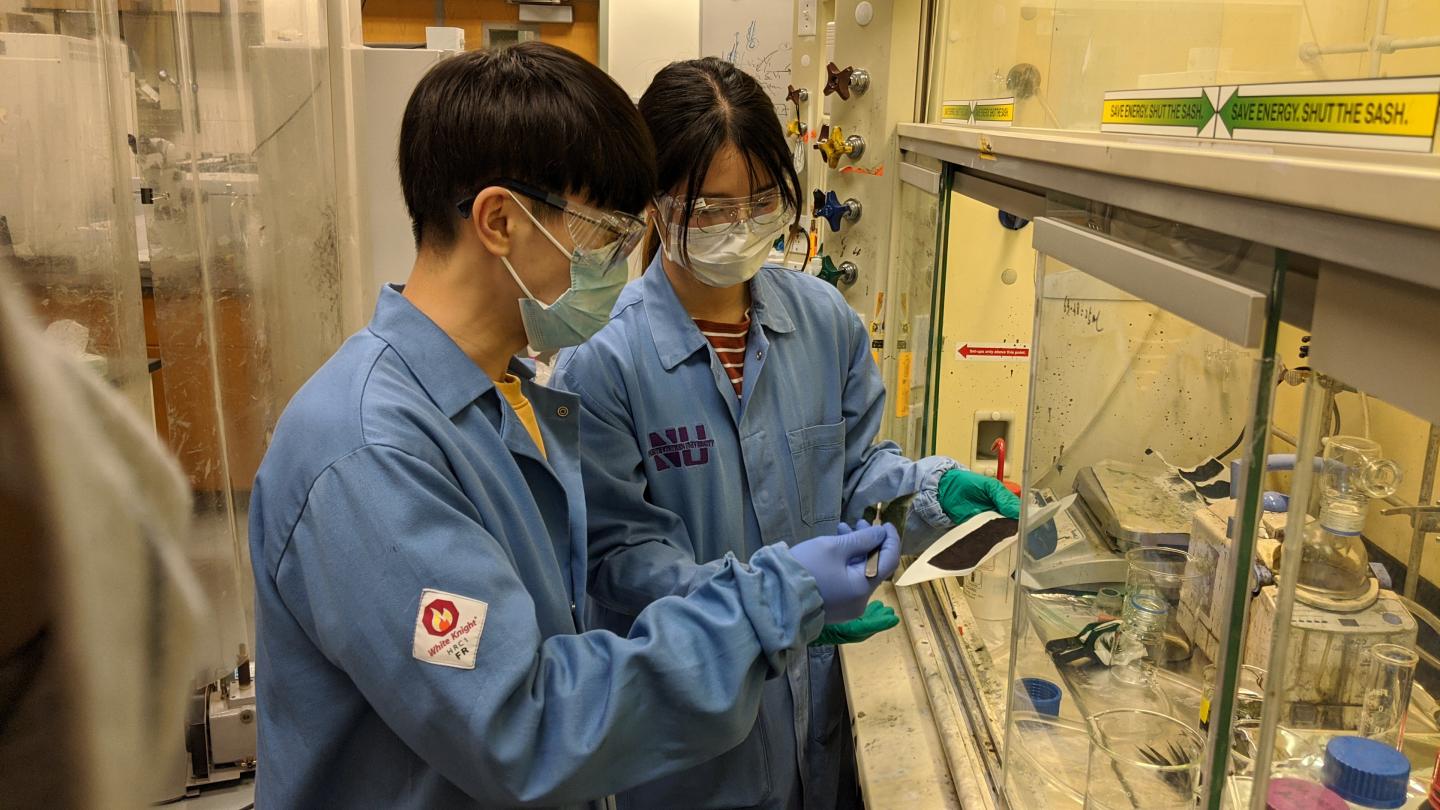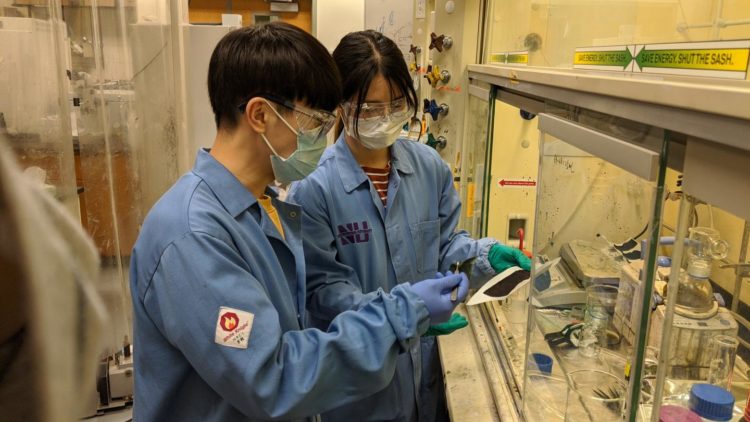Chemically modified mask design receives NSF RAPID grant

Credit: Northwestern University
EVANSTON, Ill. — A Northwestern University researcher has received funding to develop a new self-sanitizing medical face mask that deactivates viruses on contact.
Last week, the project received a rapid response research (RAPID) grant from the National Science Foundation (NSF), which has called for immediate proposals that can address the spread of novel coronavirus (COVID-19).
The Northwestern project is the first physical sciences and engineering proposal to receive support under the NSF RAPID call.
“Spread of infectious respiratory diseases, such as COVID-19, typically starts when an infected person releases virus-laden respiratory droplets through coughing or sneezing,” said Northwestern’s Jiaxing Huang, who leads the research. “To further slow and even prevent the virus from spreading, we need to greatly reduce the number and activity of the viruses in those just released respiratory droplets.”
Huang is a professor of materials science in Northwestern’s McCormick School of Engineering.
To reduce the number and activity of viruses, Huang’s team will investigate anti-viral chemicals that can be safely built into masks to self-sanitize the passing respiratory droplets. For the past week, members of Huang’s laboratory, including graduate student Haiyue Huang and postdoctoral fellow Hun Park, have been working nonstop from morning to late evening to develop new solutions. (The lab members have been designated as “essential researchers” during the State of Illinois’ “stay-at-home” order.)
Current masks worn by individuals provide a physical barrier, reducing the number of escaped respiratory droplets that would become a new source of infection after entering the atmosphere or landing on objects and surfaces.
Huang aims to design a drop-in solution that works generically with current, various types of masks to provide an additional function of deactivating viruses. The mask would help reduce the level of viruses in the droplets exhaled by infected wearers and better protect the healthcare workers or others around them.
“More researchers — and especially students in the physical sciences and engineering — can proactively study the problems and think of new ways to mitigate the transmission and spread of viruses,” Jiaxing Huang said. “Even those who need to stay home for now can still continue to brainstorm.”
The project, “On-mask chemical modulation of respiratory droplets,” is funded by NSF award number 2026944.
###
Media Contact
Amanda Morris
[email protected]
847-467-6790
Original Source
https:/





